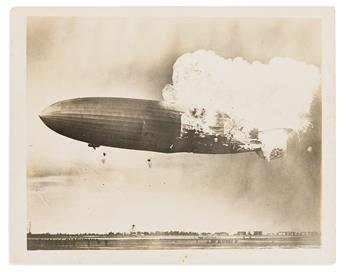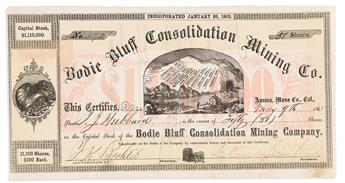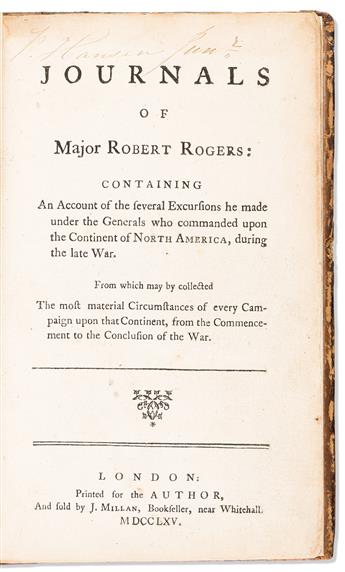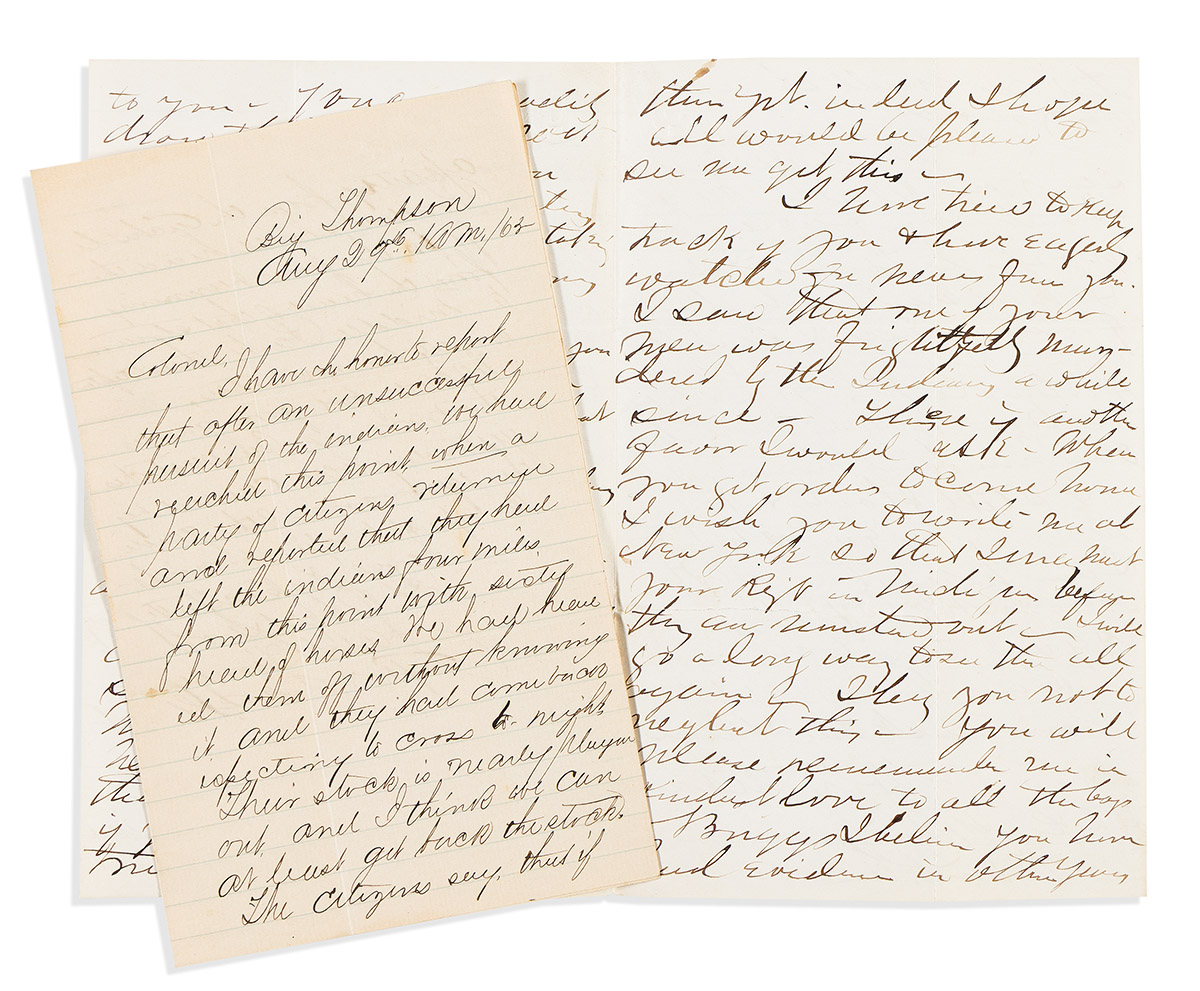Sale 2708 - Lot 200
Estimate: $ 4,000 - $ 6,000
Additional Details
Also in This Catalogue
-

 Lot 36(AVIATION.) Sequence of 12 photographs depicting the Hindenburg disaster.Estimate $4,000 - $ 6,000
Lot 36(AVIATION.) Sequence of 12 photographs depicting the Hindenburg disaster.Estimate $4,000 - $ 6,000 -

 Lot 39(CALIFORNIA.) Stock certificate for 50 shares in the Bodie Bluff Consolidation Mining Co., signed by Leland Stanford.Estimate $4,000 - $ 6,000
Lot 39(CALIFORNIA.) Stock certificate for 50 shares in the Bodie Bluff Consolidation Mining Co., signed by Leland Stanford.Estimate $4,000 - $ 6,000 -

 Lot 81(COLONIAL WARS.) Journals of Major Robert Rogers . . . of the Several Excursions he Made . . . upon the Continent of North America.Estimate $4,000 - $ 6,000
Lot 81(COLONIAL WARS.) Journals of Major Robert Rogers . . . of the Several Excursions he Made . . . upon the Continent of North America.Estimate $4,000 - $ 6,000


